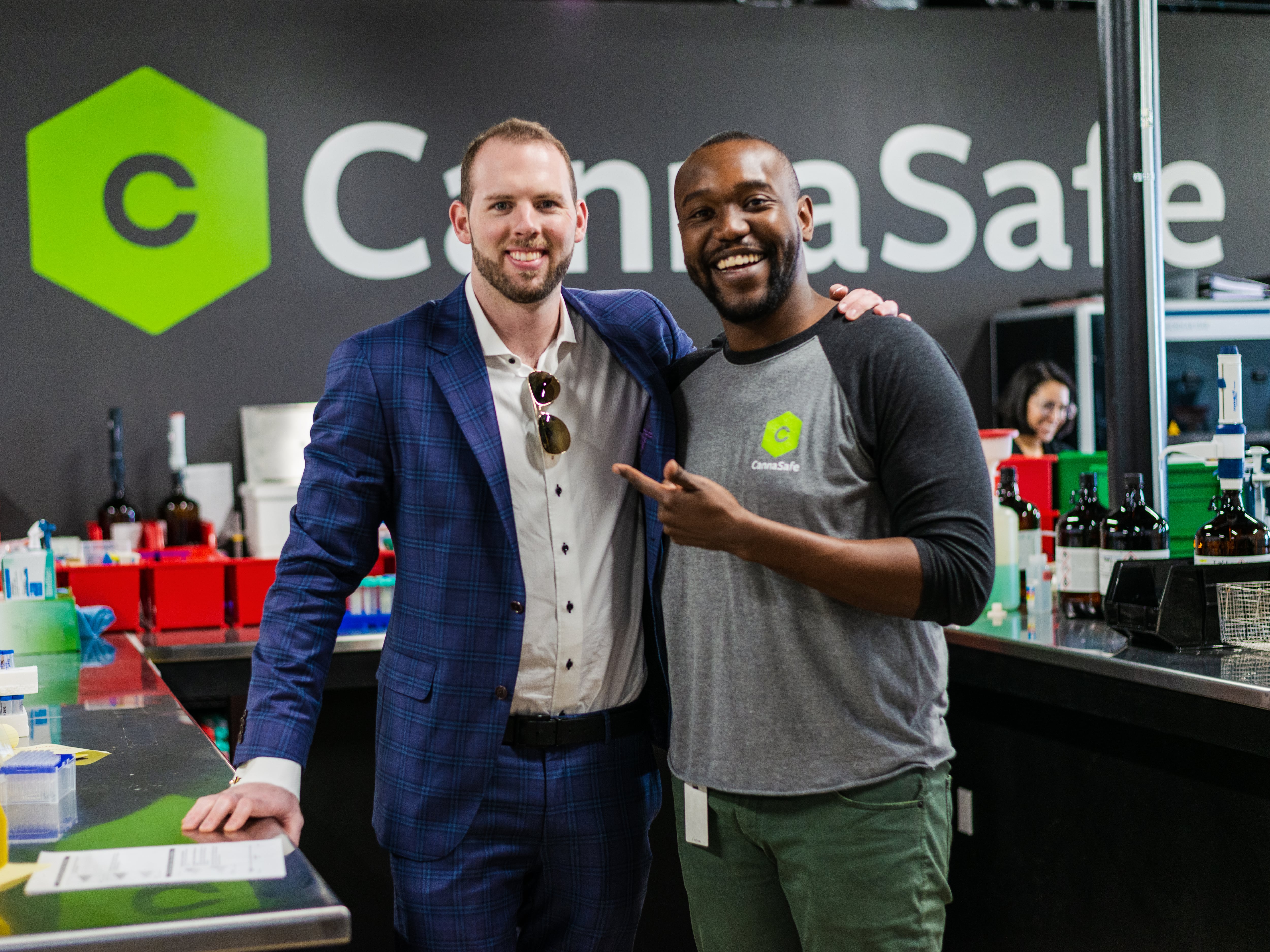The coronavirus pandemic hasn't hindered one cannabis testing lab's plans for expansion. California-based CannaSafe is expanding to locations in Oregon, Florida, and Illinois in an effort to bring its testing services and expertise to new markets despite the ongoing crisis.
"We are a needed service. Our main responsibility is to make sure that consumers have access to safe cannabis and hemp products. Regardless of the global circumstances, there is still going to be demand for these products and therefore demand for our services to make sure they are safe and viable," said Aaron Riley, CannaSafe CEO.
The company also announced that Riley, formerly the president of CannaSafe, assumed the role of CEO after a buyout of the company's previous partners. The company declined to disclose the names of the former partners. Antonio Frazier, formerly the vice president of operations, will take on Riley's vacated president role.

CannaSafe currently operates a 15,000-square-foot lab in Los Angeles, California, where it tests products for everything from potency and terpene contents to microbes, heavy metals, and vitamin E acetate.
CannaSafe expects that the expansion, which Riley said he started planning as far back as August of 2019, will allow CannaSafe to double its testing capacity. Riley said the company tested batches that represented about 22 million units of products in 2019. Once the new labs are operational in the second or third quarters of 2020, the company expects to double that.
CannaSafe selected Oregon, Florida, and Illinois for a variety of reasons not the least of which are that they have medical and recreational cannabis programs, strong testing guidelines, and, in some cases, are home to clients the lab already serves. CannaSafe said it tests roughly 30 percent of California's cannabis market and claims as clients popular brands like Dosist, Stiiizy, and Lowell Herb Co.
In addition to expanding outside of California, CannaSafe also announced a new, 25,000-square-foot headquarters in Van Nuys, California, which it will use to oversee its lab network. The facility will house corporate staff and a research and development facility.
In a decentralized industry where regulations can differ from state-to-state and even on the local level, lab testing represents an integral -- if occasionally overlooked -- step in the cannabis supply chain. But CannaSafe made a name for itself during the vape crisis, working together with NBC News to test illicit market products for adulterants like vitamin E acetate — the additive linked to e-cigarette or vaping product use-associated lung injury.
Unregulated cannabis products, like those found on the illicit market or through informal means, can pose a danger to users — as the vape crisis, which sickened more than 2,800 and killed more than 65, proved. But in spite of those dangers, Riley warned the coronavirus pandemic is emboldening the illicit market.
"People have a short memory. When times are tough, they go to the illicit market," Riley said.
Despite cannabis being deemed essential in many states, the pandemic has still disrupted business, forcing retail shops in legal markets to adjust their operations. Regulations limiting cannabis purchases to delivery or curbside pickup or even restricting access to adult-use cannabis, as in the case of Massachusetts, also pose barriers. Plus, as the economy declines, many people may not want to pay a premium for legal markets when they can get cannabis much cheaper through alternative means.
"It's too readily available and it's cheaper. If you look at an eighth of cannabis in the regulated market, they've paid taxes, they've paid licensing fees, they've paid for testing, they've paid for packaging. So the same product to be had on the black market for $30, you can get delivered to your house for $60," Riley said. "Consumers are deciding with their dollars."
Even CannaSafe has not been completely insulated from the pandemic. The company has experienced price hikes and shortages in the personal protective equipment required to run a lab. Furthermore, several employees have fallen ill, and Riley said the overall workforce has dropped by about 15 to 20 percent due to illness and social distancing measures.
"It's not ideal for anybody to expand right now, but we feel we are in a much better position than our competitors. We've built the largest cannabis and hemp lab in the world and now are going to use our corporate footprint to expand across the country," Riley said.



